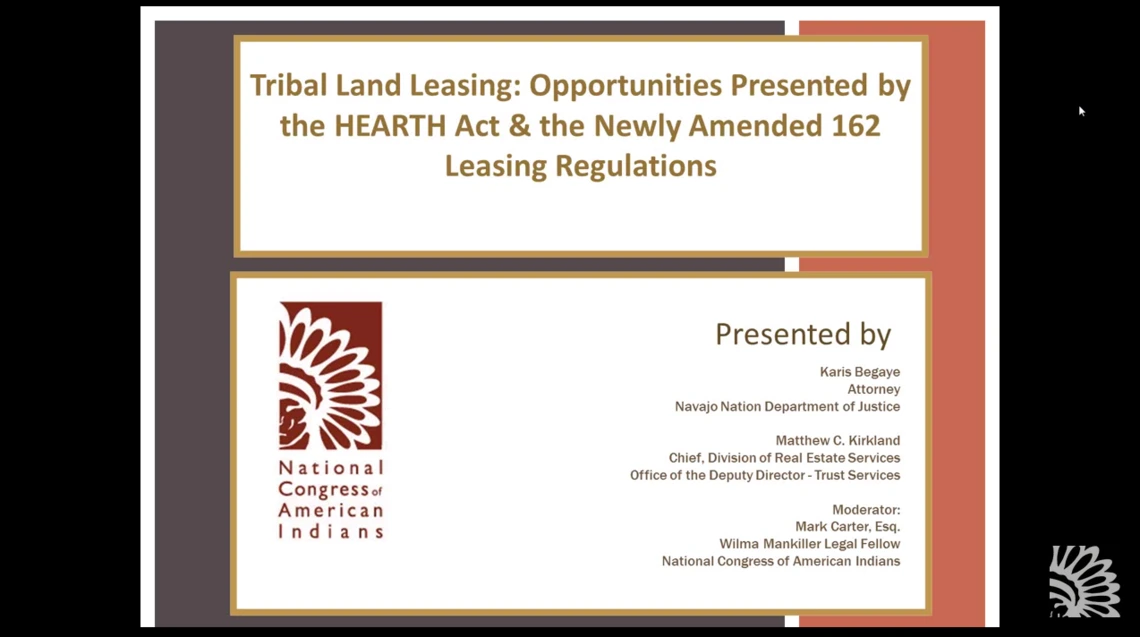This NCAI webinar discussed amendments to the Department of the Interior's 162 leasing regulations as well as practical issues for tribes to consider when seeking to take advantage of the HEARTH Act (Helping Expedite and Advance Responsible Tribal Home Ownership Act of 2012)...
Additional Information
Begaye, Karis and Matthew C. Kirkland. "Tribal Land Leasing: Opportunities Presented by the HEARTH Act and Amended 162 Leasing Regulations." National Congress of American Indians. March 29, 2013. Webinar. (https://www.youtube.com/watch?v=CHI5BHyLrWI&feature=youtu.be, accessed April 1, 2013)


